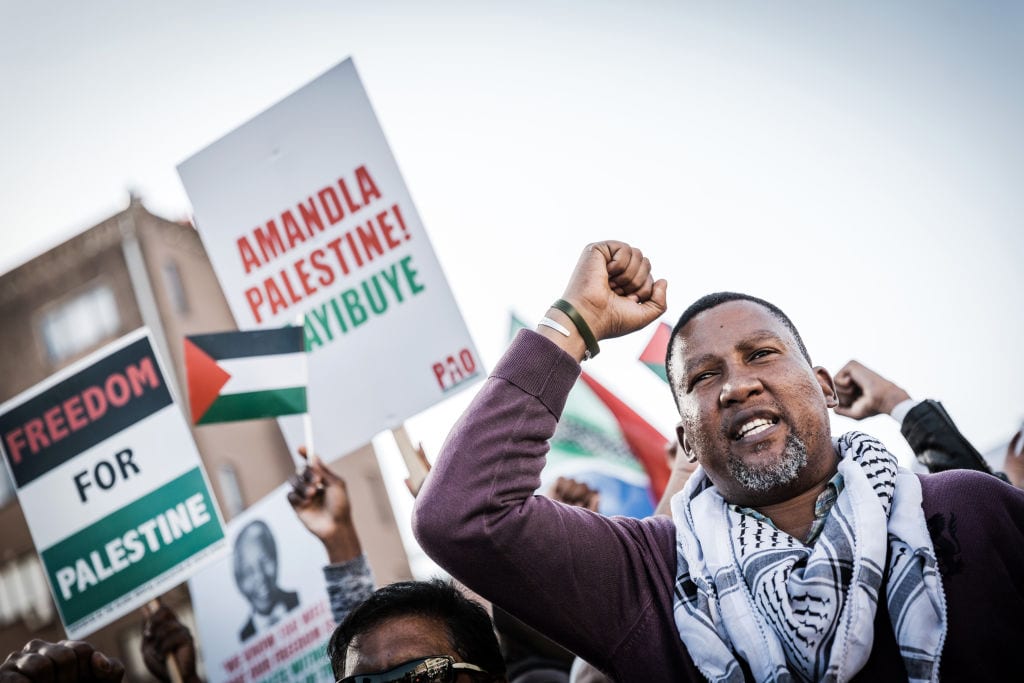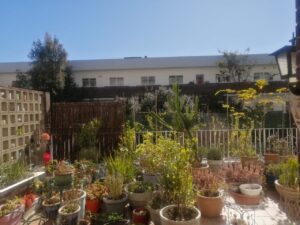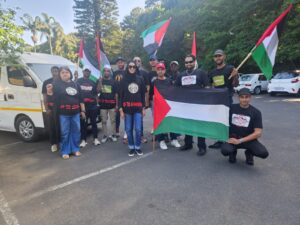
By Nabeelah Shaikh
Mandla Mandela, the grandson of Nelson Mandela, has hit back at the UK government’s reasons for denying him entry into the country over his support for Palestine.
The UK Home Office has issued a letter to Mandela, in which it cited Mandela’s support for Hamas – an organisation it says it classifies as a “terrorist” group. Authorities in the UK are claiming that his presence would pose a threat to public order.
Mandela was scheduled to participate in a series of pro-Palestinian events across the UK. However, the refusal of his visa has sparked significant controversy, with Mandela saying that this decision reflects a broader colonial mentality aimed at silencing dissent and restricting free movement.
In a statement responding to the UK government’s decision, Mandela said: “We will not be silenced. We carry the legacy that Madiba advocated when he said during his trial: ‘We have fought against black domination and white domination.’ We will carry this legacy with pride and fight inequality, domination, occupation and inequality wherever it raises its ugly head.”
The Home Office’s refusal letter outlined multiple reasons for the decision, accusing Mandela of glorifying Hamas leaders and making pro-Hamas statements. It also highlighted his support for Hezbollah as one of the reasons for the visa refusal.
The letter referenced a social media post from October 7, 2023, the day of the Hamas attack on Israel, in which Mandela stated: “We have left the Palestinian people with no other option than to resist with all their might and with everything at their disposal. We unequivocally support Operation Al Aqsa Flood.”
The UK government also referred to Mandela as having attended the funeral of Hamas’s political leader, Ismail Haniyeh, in August.
“It is considered that you have engaged in unacceptable behaviour by making statements which explicitly support Hamas, and similar organisations. As such your presence in the UK is considered to pose a threat to UK society as it would highly likely cause tensions amongst UK Jewish communities,” the letter read.
The UK authorities claimed that Mandela’s statements constituted unacceptable behaviour and threatened to incite tensions within UK Jewish communities.
They cited concerns that his support for Hamas and other organisations deemed “terrorist” by the UK government could disrupt public order.
Mandela said the visa denial is part of a broader complicity with apartheid Israel.
“The Visa Refusal Letter which I received is symptomatic of the UK’s complicity with Apartheid Israel and its ongoing support for the genocide in Gaza and all of Occupied Palestine,” said Mandela.
He drew parallels between his situation and that of his grandfather, who faced considerable restrictions during his fight against apartheid.
“We can never be silenced and we will never let the refusal of a visa prevent us from standing for justice, peace and equality. We will continue to raise our voice against the unjust occupation, genocide and ethnic cleansing of Gaza and all of Occupied Palestine sponsored by the UK and its ilk,” he said.
Mandela said despite the challenges faced by his grandfather, he remained steadfast in his pursuit of freedom and he will continue to stand up for the oppressed. He made a comparison to what his grandfather endured under apartheid and how his movement was being restricted now, saying it was a similar situation.
“My grandfather’s movement and freedom was likewise restricted, but he refused the condition of release from prison that restricted him to the Transkei. He remained firm in his pursuit of justice and continued to be a symbol of freedom, justice and human rights for all,” he said.
Mandela’s visa refusal has reignited discussions about the UK’s foreign policy and its historical relationship with both South Africa and Israel.
Mandela said it was indicative of a broader trend of stifling discourse around Palestine, especially among those advocating for the rights of the Palestinian people.
He said this refusal is not just a personal affront but also a significant infringement on the rights of individuals to freely express their views and advocate for marginalised communities.











